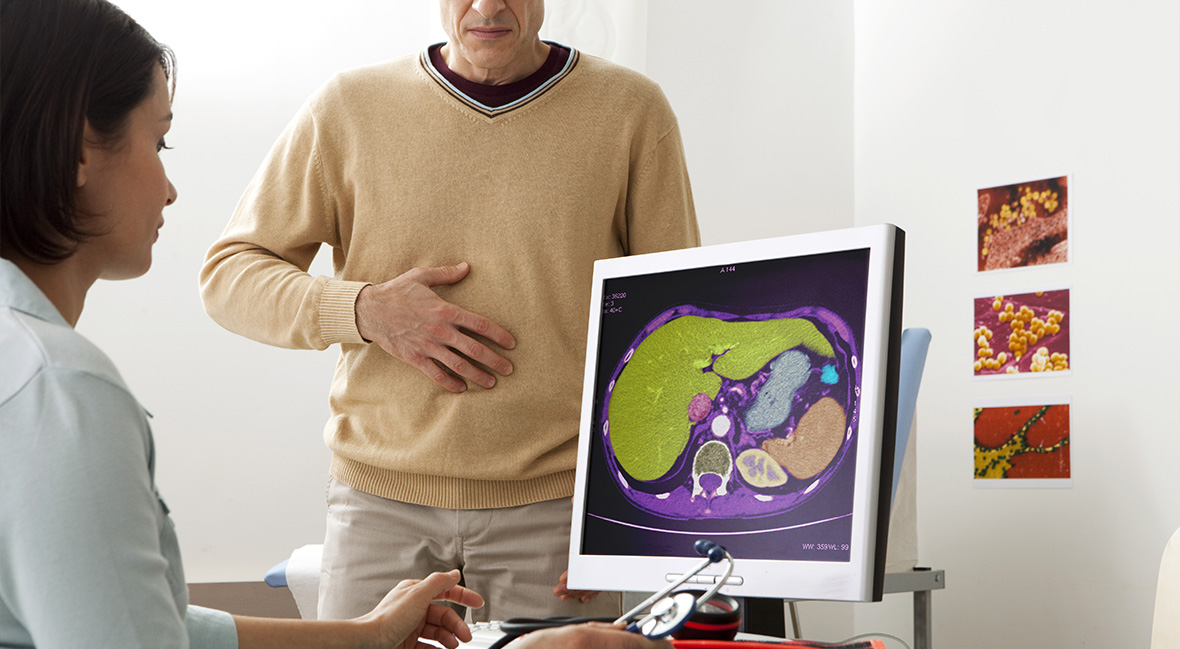Latest Articles by Gastroenterology Associates
Signs & Symptoms of Non-Celiac Gluten Sensitivity
Although gluten sensitivity is most commonly associated with Celiac disease—a disorder impacting approximately 2 million people in the United States characterized by severe gluten intolerance—there is a milder form of the condition known as non-Celiac gluten sensitivity (NCGS). Specialists estimate 1% to 3% of the population have NCGS.
Read Now
What Are Celiac Disease & H. Pylori Infection?
Celiac disease and Helicobacter pylori (H. pylori) are two gastrointestinal conditions that present symptoms including abdominal pain, bloating, gas, and weight loss. If left untreated, both conditions can have severe consequences, so it’s important to understand these disorders, their symptoms, diagnosis, and treatments.
Read Now
Conditions Affecting the Liver, Pancreas & Gallbladder
The liver, pancreas, and gallbladder make up the biliary system, a portion of the digestive system known for absorbing nutrients and disposing of waste. This network can be affected by several conditions ranging from ascites to pancreatic cancer.
Read Now
Irritable Bowel Syndrome: Triggers, Symptoms, Diagnosis & More
Irritable bowel syndrome (IBS) is a common chronic gastrointestinal condition that affects the large intestine. An estimated approximately 10 to 15 percent of the world’s population is affected by this disorder, which is also believed to impact between 25 and 45 million people in the United States.
Read Now
What Is Inflammatory Bowel Disease?
Approximately 3 million Americans have some form of inflammatory bowel disease (IBD)—an illness defined by the Centers for Disease Control and Prevention (CDC) as “a term for two conditions (Crohn’s disease and ulcerative colitis) that are characterized by chronic inflammation of the gastrointestinal (GI) tract.” If left untreated, prolonged inflammation can result in major damage to the GI tract.
Read Now
Heartburn, Acid Reflux & GERD: What You Need to Know
Although many believe heartburn, acid reflux, and gastroesophageal reflux disease (GERD) are one in the same, they’re actually three distinct conditions. However, they are related, as acid reflux causes both heartburn and GERD, and heartburn is a symptom of both acid reflux and GERD.
Read Now
What Is Colon Cancer & How Can I Prevent It?
Colon cancer arises in the colon aka large intestine, the 5- to 6-foot tube connecting the small intestine to the rectum, its final several inches. This digestive organ transports and processes food through several segments—including the cecum, ascending, transverse, descending, and sigmoid. Abnormal cells can develop in the lining of its wall or rectum. These can multiply uncontrollably and become cancerous, impacting the entire digestive system, and ultimately, causing death.
Read Now
Stay Connected: Subscribe to our blog
By subscribing, you’ll receive notifications regarding health and wellness, your diet, and more















